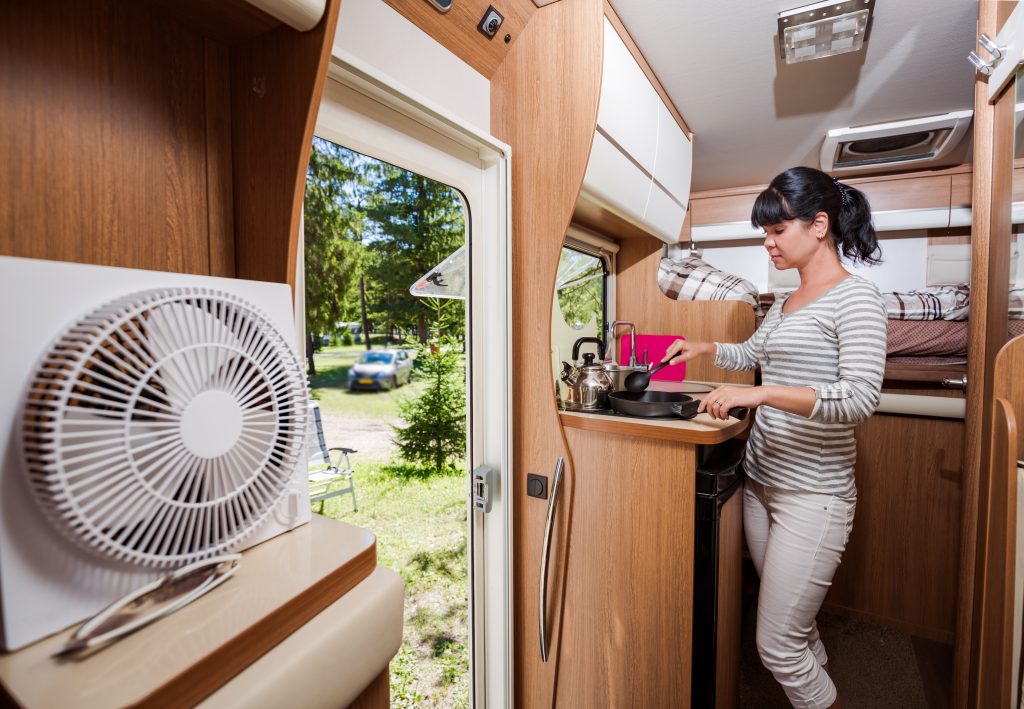News
Where can I park my motorhome for free?
20 November 2017

The lure of the open road and new sights, tastes, experiences and adventures is an attractive proposition to those with the opportunity and the mode of transportation to make this nomadic dream a reality.
According to Britstops (giving motorhome tourists an authentic taste of Britain) there are over 200, 000 motorhomes registered in the UK, and they are often owned by older people who have been fortunate enough to take early retirement. They have the time and the opportunity to explore the wonderfully diverse British Isles, and they also often venture further afield into Europe. This obviously isn’t the only demographic that enjoys taking to the open road, as people of all ages can seize their chance, during the weekends, or during school holidays – basically any time they can fit in, to take off!
As well as the romantic notion of heading off into the blue yonder, and seeing where the road takes you, there are also lots of practicalities that you need to consider, in order to stay safe, and on the right side of the law in terms of where you choose to park up for the night, although there is some ambiguity in this, as discussed here.
The beauty of the campervan is that is a self-contained unit of accommodation (as well as getting you around), and a well-equipped campervan has all that you need, without needing to book into a hotel, or bring along a tent.
They usually include:
- Basic cooking facilities
- Foldable beds or fixed beds
- Pop-top roofs
- On-board water tanks
To reduce the worry about finding a suitable overnight parking spot, where you are safe, won’t get asked to move, and it doesn’t cost an arm and a leg, – many people are now using authorised ‘stopover points’ where amenable hosts are happy for you to park up, without any potential issues with the local authority, or local landowners, asking you to move on.
These spots are growing in number all the time – and you can take a look at the UK options in the ‘Britstops’ book – which gives you important details about stops such as:
- location (including SatNav directions)
- Info about the type of place you’re stopping e.g. a pub, farm shop, vineyard, brewery or craft/antique centre
- the number of overnight stops available
- the name and telephone number of the host
- information about local produce, and the wider local area
This is a win-win situation, as you get an approved place to stay for the night, and you are encouraged to enjoy the local attractions, shops, restaurants and give something back in return – by shopping local, and using nearby facilities (whilst enjoying authenticity in a welcoming rural environment)
Across the channel in Europe, there seem to be more municipal motorhome stopover points, with the overall aim of boosting local tourism and in turn providing a cash injection in the local economy, as well as local farms that open up the opportunity to stay.
They are identified in the guidebook ‘All the Aires’ (‘Aires’ means area in French) which covers stopover options in several European countries – France, Spain, Portugal, Italy, Germany, Belgium, the Netherlands, Luxembourg and Scandinavia. In order to stop at an ‘aire’ then you must be ‘self-sufficient’ (you must be able to cook and sleep in your vehicle, have a toilet, and a water container for both fresh and waste water) You aren’t allowed to put a table and chairs beside your motorhome, or camp outside in a tent, if you’d like the freedom to do this, it’s best to stay in a designated campsite.
As with all types of travel that you plan to do, travel insurance is an essential buy before you take to the road in either the UK or Europe. You may not think that you need travel insurance in these particular destinations (because of the NHS or your EHIC card) but these are not all-encompassing of potential medical costs, and also there are other benefits to your travel insurance that would be a great idea to have cover for:
- Cover for your personal belongings (including electrical and photographic items and your jewellery and watches)
- Cover for repatriation back to the UK due to a serious medical issue
- Cutting short your trip, for example, if a loved one suffers an unexpected medical problem
One particularly relevant thing to be aware of, is that there is a clause within lots of travel insurance policies about personal belongings being left unattended in a motor vehicle. Our policies state that ‘cover is available, provided you have not left your possessions unattended away from your holiday or trip accommodation, unless left between 6.00 am and 11.00pm local time (during daytime) , in the locked boot or covered luggage area of a vehicle, unless entry was gained by violent and forcible means.’
Take a look at all of our policy wordings in their entirety here.
So, it’s important to think about where you’re storing valuable items within the motorhome, definitely keeping them out of sight – or ideally, taking them with you, where practical. The key mantra with travel insurance is to ‘act at all times as if you are uninsured’ – meaning that you should take all the common-sense precautions that you would normally do to keep your belongings safe – and your travel insurance policy is your safety-net if all your best efforts are still not enough to deflect problems.
If you’d like to get a quote for your next trip away (whatever mode of transport you will be using!) , please visit our website or give us a ring to discuss your plans, and we’ll happily provide you with a quote and explain your policy benefits, and answer any questions that you may have. We are available in the office Monday to Friday 9am to 5pm on 01424 223964.
If you’d like to save 10% on your next ravel insurance policy, please ‘Like’ our Facebook page and you will then be able to access an exclusive 10% online discount code

Related posts
We’re all going on a working holiday!
12 July 2012Read more
Places to Visit | Travel NewsLondon is the most highly-rated city destination
30 July 2012Read more
Misc | Special EventsA Travel Insurance Policy for Father Christmas
3 December 2012Read more
CompetitionsHidden Gems Travel Competition Entries
7 March 2013Read more